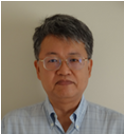Participation in SC25
7 Nov. 2025
The Information Technology Center of the University of Tokyo participates in SC25, The International Conference for High Performance Computing, Networking, Storage, and Analysis, held in St. Louis, Missouri, USA, from November 16 to 21.
Presentations by Affiliated Researchers
Roles at SC25
| Name | Role | Committee |
|---|---|---|
| Nakajima, Kengo | Member | ACM Gordon Bell Prize Committee |
| Nakajima, Kengo | Member | Posters Committee (Research Poster, ACM SRC) |
| Nakajima, Kengo | Member | Program Committee, MEMO’25: International Workshop on Memory System, Management and Optimization |
| Nakajima, Kengo | Member | Program Committeee, ScalAH25: 16th Workshop on Latest Advances in Scalable Algorithms for Large-Scale Heterogeneous Systems |
| Hanawa, Toshihiro | Area/Track Vice Chair | Technical Program Committee, State of The Practice Area/Track |
Presentations Using Supercomputers of the ITC/JCAHPC, The University of Tokyo
Exhibition Booth
At booth 2912 (ITC/JCAHPC, The University of Tokyo), we will showcase research posters and videos, and provide a space for interaction with visitors.
On the evening of Monday, 17 November, during the Grand Opening Gala, we will hold a joint booth talk with the adjacent booth of the University of Tsukuba (CCS/JCAHPC).
We warmly invite you to visit Booth 2912!
Also on Tuesday 18 November 14:00-, we’ll have booth talk at the booth 2912. See details here.
Booth talk program on Monday, 17 November at the 2912 ITC/JCAHPC, The University of Tokyo exhibition booth
| Time | Name/Organization | Title of Talk | |
|---|---|---|---|
| 19:10-19:15 | Kengo Nakajima Professor/Division Lead, Supercomputing Research Division, Information Technology Center, The University of Tokyo, Japan |
 |
Overview: Our Next 10 Years with Supercomputing |
| 19:15-19:30 | Kazuya Yamazaki Assistant Professor, Supercomputing Research Division, Information Technology Center, The University of Tokyo, Japan |
 |
Accelerating atmospheric simulation on Miyabi-G: co-execution across CPUs and GPUs with a single codebase |
| 19:30-19:45 | Yuuichi Asahi Research Scientist, CEA, Maison de la Simulation, France |
 |
Development of a performance portable distributed FFT library |
| 19:45-20:00 | Hiroshi Horii Head of IBM Quantum Japan, Senior Technical Staff Member, IBM Quantum |
 |
Development of Quantum-HPC Hybrid Application with Workflow Tool |
Abstructs
- Kazuya Yamazaki
- Supercomputer Miyabi is a heterogeneous system featuring GPU-equipped Miyabi-G nodes, CPU-only Miyabi-C nodes, and all-flash shared storage connected via a 400-Gbps full-bisection-bandwidth network. Miyabi-G comprises 1120 nodes, each with a Grace-Hopper Superchip. While Hopper GPUs offer superior throughput especially for arithmetic compute, Grace CPUs also provide substantial memory and cache bandwidth. In this study, a weather simulation code previously ported to GPUs using OpenACC was reconfigured to also utilize CPU cores. By leveraging OpenACC’s multi-platform support with a unified codebase, modifications were limited to the communication modules. Due to the memory-bound nature of the application, the hybrid version—using both CPUs and GPUs—achieved approximately 25% higher performance compared to the GPU-only version.
- Yuuichi Asahi
- In the talk, we present the development of a performance portable distributed FFT implementation on top of the Kokkos ecosystem.Thanks to Kokkos and kokkos-fft, we largely simplify the APIs and implementation details of distributed FFT with performance portability. We newly develop unique features like batched-distributed FFT and interfaces to vendor distributed FFT libraries (such as cuFFTMp). We demonstrate that our distributed-FFT works efficiently on NVIDIA, AMD and Intel GPUs, while keeping a reasonable performance on CPUs.
- Hiroshi Horii
- We introduce a Python-based workflow framework that integrates quantum and high-performance computing (HPC) using Prefect, tailored for Miyabi and ibm_kawasaki. This framework allows users to easily describe workflows in Python and incorporate HPC commands, enabling seamless orchestration of hybrid tasks. It maximizes the utilization of both quantum and HPC resources, supporting efficient and scalable quantum application development. We successfully demonstrated several algorithms on this framework, including SQD, SKQD, and a newly developed method. These demonstrations highlight the framework’s flexibility and potential for real-world use cases. In this talk, I will present the architecture of the framework, focusing on its design, implementation, and future direction. We also plan to expand the GitHub repository with shared libraries to support algorithm development across QII member companies.
Booth talk program on Tuesday, 18 November 14:00- at the 2912 ITC/JCAHPC, The University of Tokyo exhibition booth
| Presenter | Title | |
|---|---|---|
| 1. | Francesco Antici | Automated detection of ai training jobs to enhance security in hpc systems |
| 2. | Ryoma Ohara | Analysis of Application Power Characteristics Using Performance Counters on A64FX |
| 3. | Toshihiro Hanawa | GPU Direct I/O for Large Scale Data |

